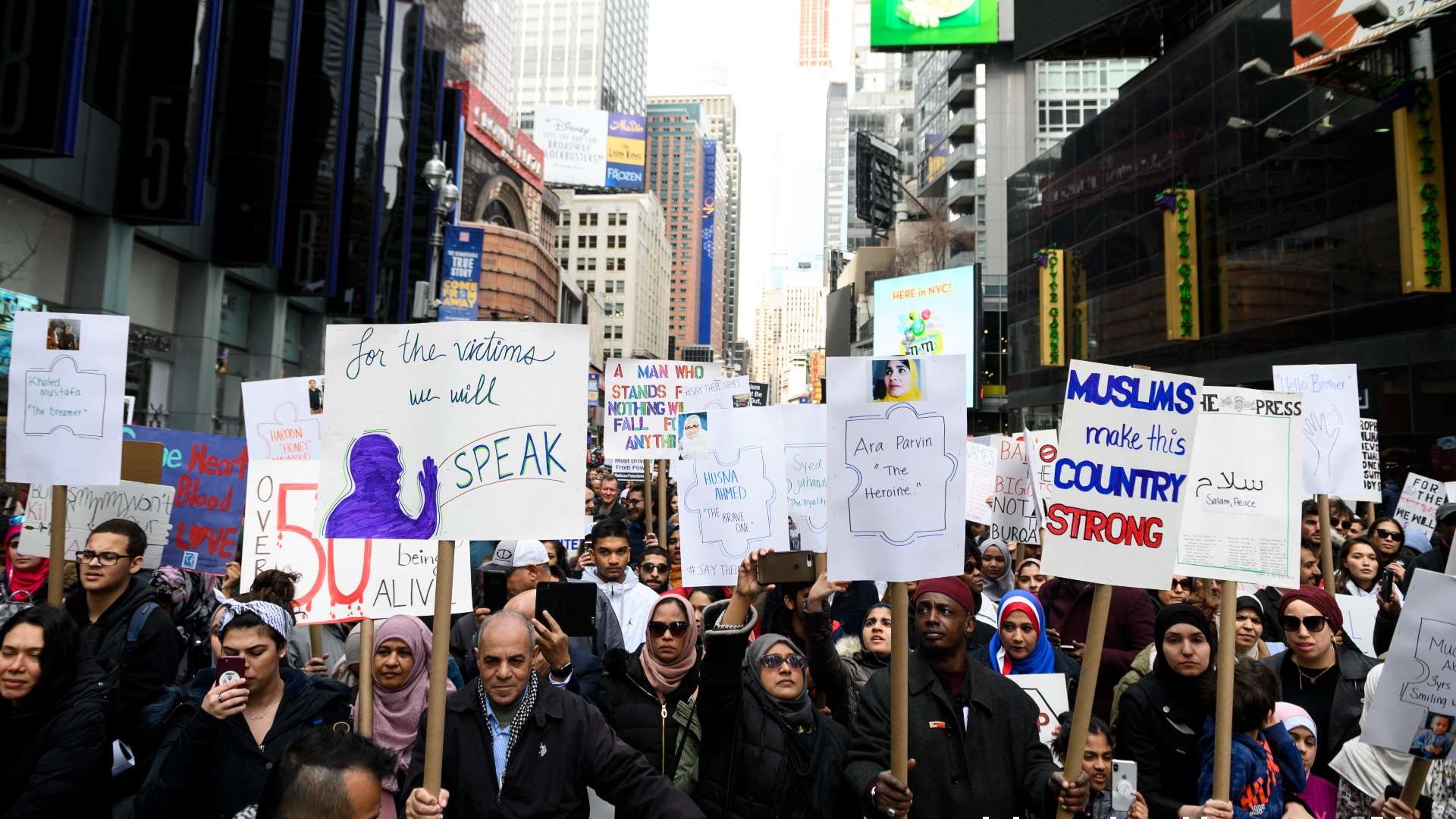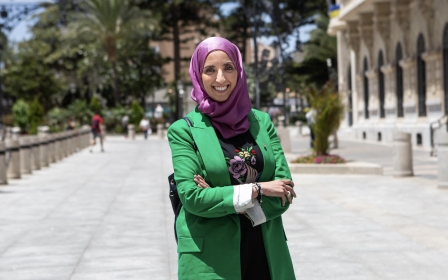Islamophobia remains steady in the US, but why do some Muslims share the sentiment?

As Islamophobia in the United States has remained steady in recent years, internalised Islamophobic sentiments have risen from within the Muslim American community, according to newly released data from the Institute for Social Policy and Understanding (ISPU).
The new American Muslim Poll released on Thursday found that a quarter of Muslims believe that Muslims are prone to violence, while only nine percent of the general public believe this to be true.
One fifth of Muslims, meanwhile, agree with the sentiment that Muslims are less civilised than other Americans - only five percent of the general American public shares this view.
Similarly, 18 percent of Muslims agree with the idea that Muslims are partly responsible for acts of violence committed by others.
Stay informed with MEE's newsletters
Sign up to get the latest alerts, insights and analysis, starting with Turkey Unpacked
While it's unclear why such a large segment of the Muslim American population holds these views, researchers at the ISPU say decades of mass media and propaganda in the US equating Muslims with extremism may have played a role.
According to the polling, younger Muslims - between the ages of 18 and 29 - were found to agree more with the sentiment that Muslims are prone to violence than older age groups.
"These findings suggest the internalized Islamophobia that has possibly resulted, in part, from two decades of collective blame since the 9/11 attacks," the report said.
'These findings suggest the internalized Islamophobia that has possibly resulted, in part, from two decades of collective blame since the 9/11 attacks'
- Institute for Social Policy and Understanding
"Americans who have lived the majority of their lives after 9/11/2001 in a country that has demonized their identity in popular culture, news media, political rhetoric, and in policy. Research suggests that this kind of steady drumbeat of bigoted ideas and state actions have a detrimental impact on the target group’s self-image and mental health."
The ISPU's research also found that, since 2018, Islamophobia among white Muslims rose dramatically, adding that "further research is needed to explain why there has been such a large increase in Islamophobia among white Muslims".
Muslims continue to face high levels of discrimination
For the sixth straight year, the ISPU's poll found the number of Muslims who had experienced discrimination had remained unchanged.
Around 60 percent of Muslims said they have faced discrimination over the past half-decade, including this past year, according to the group's polling. This number is far higher than any other group in the US.

The discrimination has also extended to children, with the polling finding that nearly half, 48 percent, of all Muslim American families reporting their child was bullied because of their faith. One in five families say their child faces such bullying on a daily basis.
"Muslim children and parents have to worry about facing religious-based bullying at school and online from other students and even trusted adults in the school," the report said.
While voter registration among Muslims has risen to more than 80 percent in 2022, the poll also similarly found that 46 percent of Muslims reported facing obstacles to voting.
The relationship between Muslim communities and the police has also remained tense throughout the past several decades. Many Muslims distrust the police, and by extension the US government, because of the surveillance operations conducted against them following the 9/11 attacks.
Another recent report published by Rice University found Muslims were five times more likely to experience police harassment because of their religion compared with those of other faiths.
Over the past several years, there have been a number of high-profile attacks against Muslim communities in western countries. In 2017, a gunman attacked a mosque in Quebec City and killed six worshippers. Then in 2019, another gunman killed more than 50 Muslim worshippers attending Friday prayer service in New Zealand.
The ISPU's American Muslim Poll was fielded between February and March 2022, and 807 Muslim adults, 351 Jewish adults, and 1,001 adults from the general population were interviewed for the study.
This article is available in French on Middle East Eye French edition.
Middle East Eye delivers independent and unrivalled coverage and analysis of the Middle East, North Africa and beyond. To learn more about republishing this content and the associated fees, please fill out this form. More about MEE can be found here.





